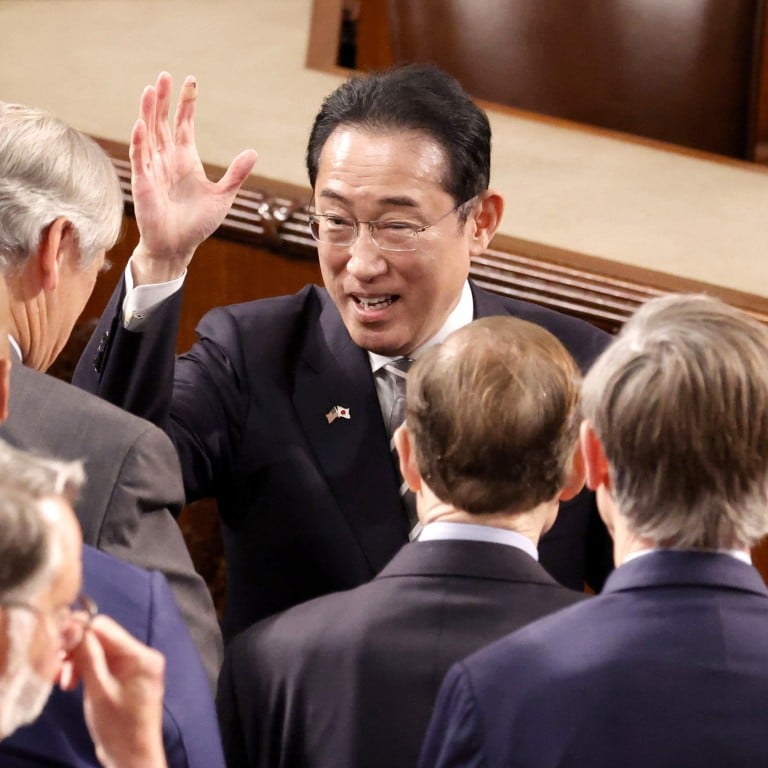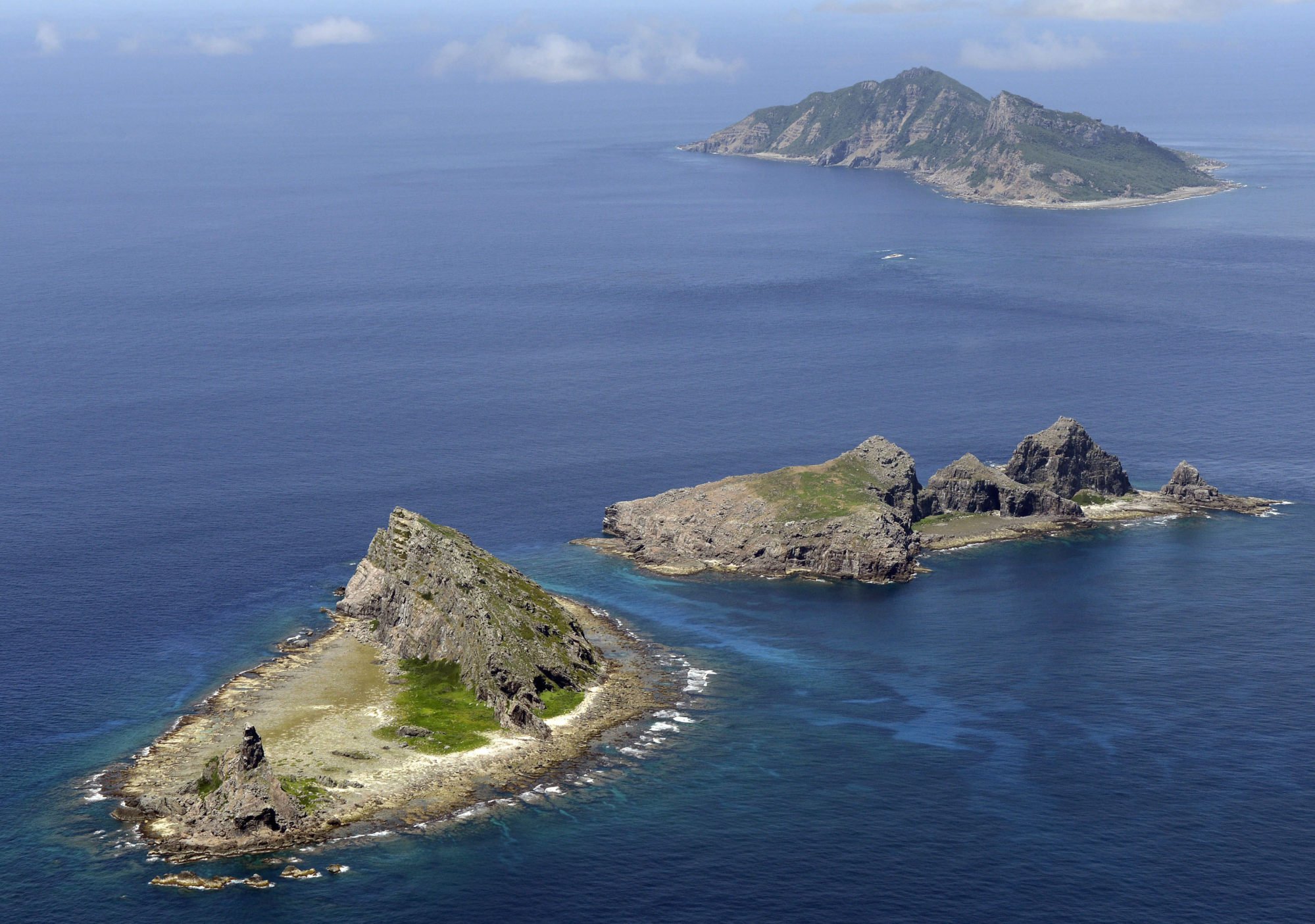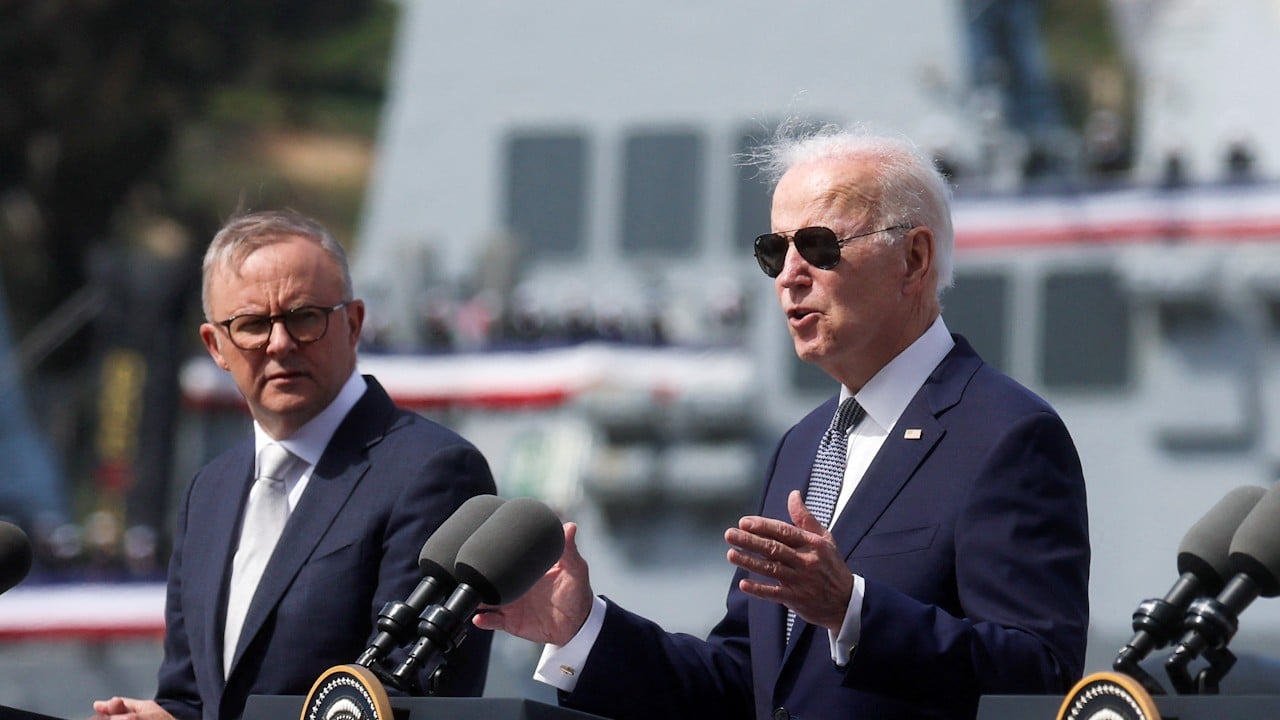
How could an Aukus role for Tokyo affect China’s ties with Japan?
- Japan has been touted as a potential partner for the US-led alliance that has China in its sights
- The relationship between the two Asian giants is already ‘complex and delicate’, despite their intertwined economies
In the end, little changed, with Kishida saying “nothing has been decided at this moment” on Japan’s direct cooperation with Aukus.
Nevertheless, Chinese observers say that the direction of travel is clear: Tokyo is tilting more towards US-led security structures.
Yet, China remains Japan’s biggest trading partner, with US$318 billion in total trade last year, according to Chinese data, and their economies are highly intertwined.
Zheng Zhihua, research associate professor of the Centre for Japanese Studies at Shanghai Jiao Tong University, said the result of Tokyo’s tilting was a “complex and delicate” stalemate full of mistrust and suspicion.
The delicate strategic balance between the two countries would be unsettled by Japanese involvement in Aukus, even though their economic interdependence would remain strong, Zheng said.
China ‘gravely concerned’ about reports Japan could join Aukus security pact
“Amid the backdrop of Japan continuously stepping up defence cooperation led by Washington in recent years, the momentum for Sino-Japan relations will only be negative and unlikely to be improved in the near future,” he said.
That cooperation with Washington has taken various forms over the years. More recently, the US and Japan have been pushing for a deal that enables US Navy warships to be regularly overhauled and maintained at Japanese shipyards, relieving pressure on American yards struggling with maintenance backlogs.
But it is unlikely to extend to Japan becoming an official fourth member of the pact any time soon, given Tokyo’s non-nuclear weapons policy, observers say.
Ryosuke Hanada, a researcher at Sydney’s Macquarie University, argued that hurdles still loomed for Japan to formally join Aukus.

“Japan’s formal entry requires synchronisation of rules and actions with Aukus members,” Hanada said, citing highly restrictive arms-trade rules and a lack of tough anti-espionage laws.
“At this stage, there is nothing more than consideration of Japan’s future participation or a project-by-project basis cooperation in some areas,” he added.
But if Japan did end up having some involvement in the alliance, it would be seen by China as destabilising, said Zhang Yilun, a research associate at the Washington-based Institute for China-America Studies.
Zhang said Beijing could respond by bolstering its military presence and increasing the frequency of air and maritime activities near Japan.
The challenge now was to keep a fragile balance between their strong economic ties and Japan’s security cooperation with the US, he said.
‘Natural’ for Japan to play larger Aukus role, but likely not as partner
“As the US continues to push for closer security cooperation with Japan, Tokyo and Beijing need to figure out new opportunities to deepen their economic ties to balance out the negative impact of Japan-US cooperation,” he said.
Yoichiro Sato, an Asia-Pacific studies professor at Ritsumeikan Asia Pacific University in Japan, said the economic relationship between China and Japan was likely to continue, with any enhanced Aukus having a limited impact on overall bilateral ties.
“There is a degree of acknowledgement on both sides that the bilateral economic linkage must be sustained,” Sato said.
Ryo Sahashi, an associate professor of international politics at the University of Tokyo, said more dialogue was needed between Japan and China.
The future security landscape of East Asia may rush headlong to disastrous situations
Sahashi said Japan was now positioned at the centre of Asia’s security architecture, and ought to deal with China, including engaging in dialogue.
“However, the dialogue between Japan and China has recently been narrowing, even compared to the United States, which is a concern,” he said.
One consequence of a partnership between Japan and Aukus would be the challenges China would face in applying Japan’s cheaply and readily available dual-use technologies for military purposes, according to Sato.
“The cooperation with Japan may evolve further into different spheres of policy coordination and may not be limited to the four parties, as would be a case in intelligence sharing among Anglo-American partners including Canada and New Zealand,” he added.
US says China shouldn’t see Biden summits with Kishida, Marcos Jnr as a threat
While an Aukus partnership is not an immediate prospect, the likelihood of Japan’s formal entry will increase if the security situation in East Asia “further worsens” and “the confrontation between Western countries and China and Russia intensifies”, according to Zheng.
“China and Japan may be trapped in a pernicious circle of upgrading their defence capabilities,” he warned.
“The future security landscape of East Asia may rush headlong to disastrous situations, and their pursuits of one-sided, absolute security comes with greater insecurity.”


